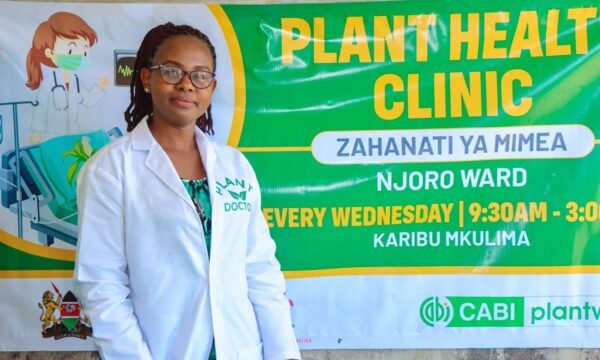The Sorrel plant (left) was one of those found by the trainees during the recent training in Module 1 of how to be a plant doctor. The plant doctor training uses live plant material as well we photographs to lead the trainees through the process of field diagnosis.
The large and hard beige lump at the base of the stem is a gall caused by the bacterium Agrobacterium tumefaciens. The unique thing about this host/ pathogen interaction is the fact that DNA from the bacterium is inserted into the plant where it remains even long after the bacteria have been removed. This is the only natural example of DNA transfer of this kind; a natural genetic engineer.
The inserted DNA codes for proteins which are to the advantage of the bacteria, the genes inserted cause the plant cells grow in this disorganised manner and begin to produce large amounts of unusual amino acids which cannot be broken down by anything other than the bacteria. The bacteria have, in effect, generated their own factory producing food for themselves that nothing else can use.
It was a modified Agrobacterium that was used to produce the GM crops grown over much of the world. The genes for the tumour production were deleted and the genes of choice inserted, these have included herbicide resistance and insecticide resistance genes as well as genes for better nutritional value from the food. In recent times Agrobacterium has to some extent been replaced by the shotgun approach whereby the DNA is literally shot into the plant cells carried on minute colloidal gold particles. This technique of creating GM crops is clearly more spectacular than the natural method but Agrobacterium was certainly the first.
2 Comments
Leave a Reply
Related News & Blogs
How plant clinics are strengthening crop health services in Bangladesh
When the first-ever plant clinic in Bangladesh opened in Dhaka in 2013, it initially faced a lack of interest due to its novelty and limited awareness among farmers. However, it went on to expand, providing advice to over 17,000 farmers and led to the…
2 July 2025






Reblogged this on Science on the Land and commented:
argylesock says… This bacterium provided the first technology for making genetically modified (aka genetically engineered) crops.
[…] host (victim) where the DNA stays even when Agrobacterium has gone. Dengephil at Plantwise explains how Agrobacterium works. Its ability to transform plant cells is useful for the bacterium and it’s proved useful for […]